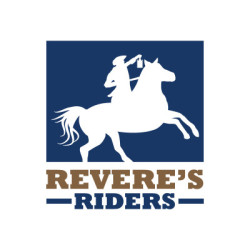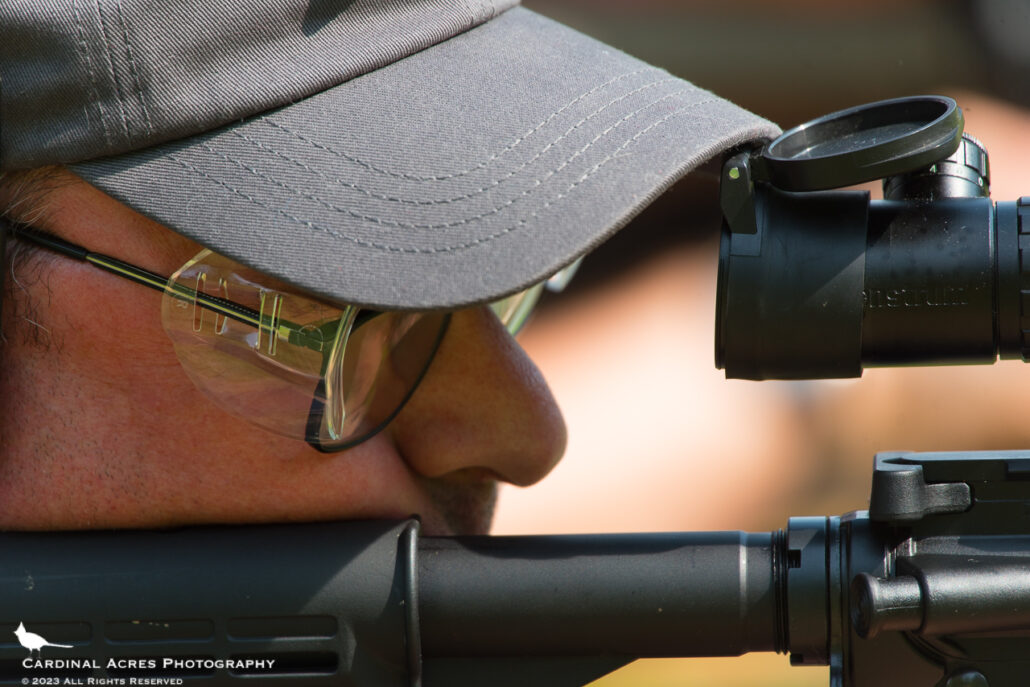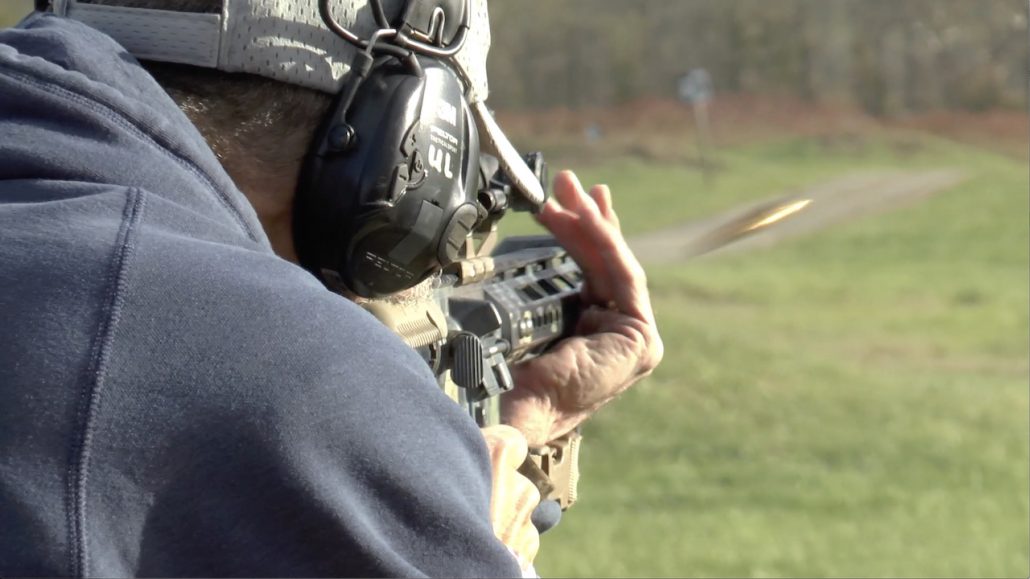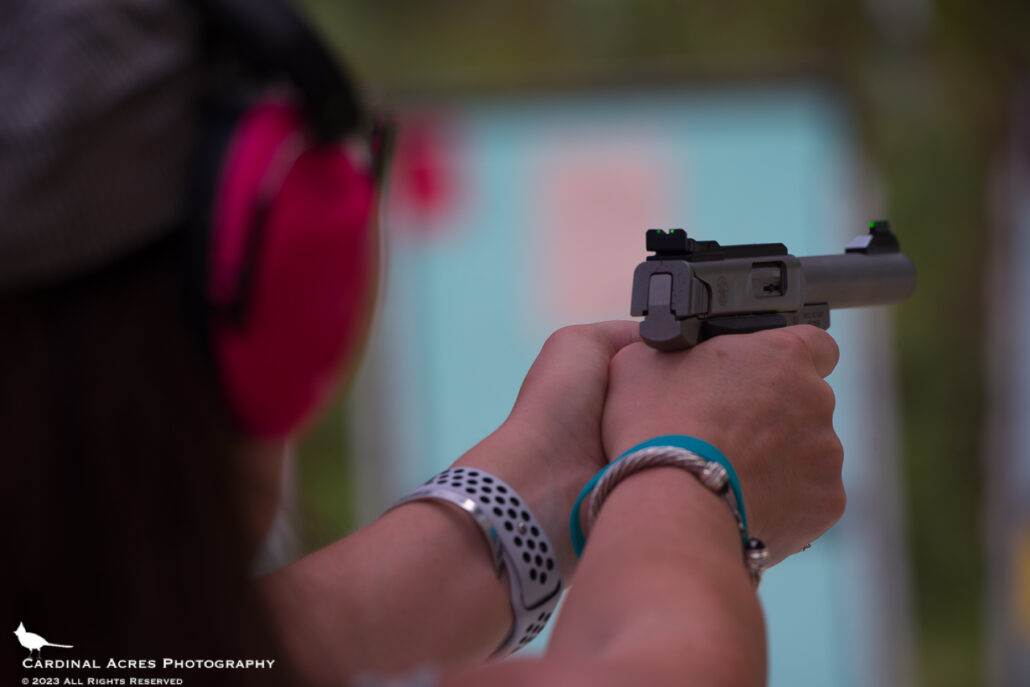
- This event has passed.
Basic Defensive Pistol – One Day (Seelyville, IN)
Mar 15 @ 9:00 am—4:00 pm EDT
Event Navigation
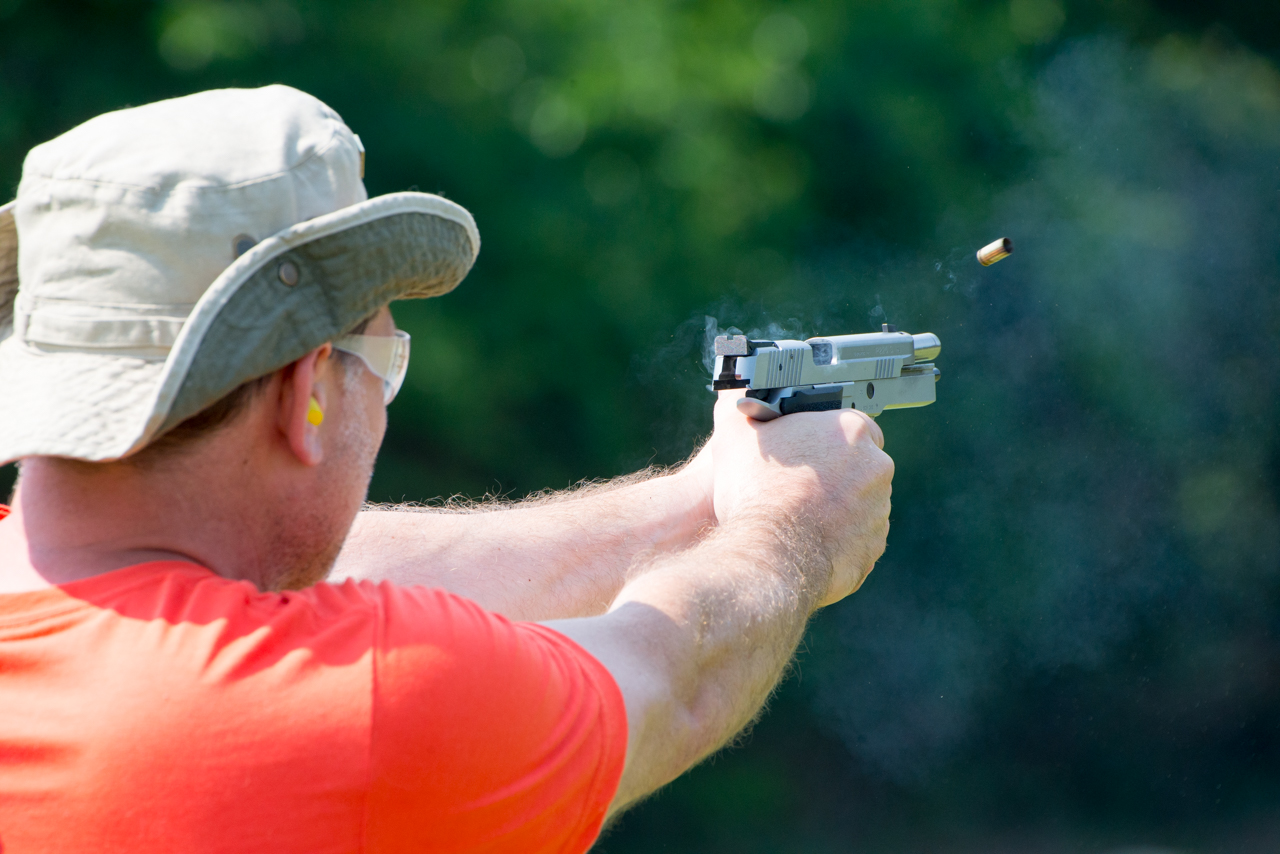
Basic Defensive Pistol Overview
Prerequisites: Suggested—Revere’s Riders Basic Pistol or similar. This is not an introductory course and participants are expected to be capable of the following:
- handling their firearm in a safe manner
- keeping shots within a 6″ square from approximately 7 yards
Estimated Ammunition Required: About 250 rounds/day.
Pistol Requirements: Pistols should be of a modern, drop safe design.
Older single action pistols manufactured before the 1980s and lacking a transfer bar safety are the most common type of pistol that lack drop safe design features, as do some military surplus imports from Eastern bloc countries and Taurus PT-series pistols not fixed during an international safety recall in 2015. These pistols may discharge if dropped and pose a potential safety hazard to our volunteers and students, and are not permitted. If you have concerns about the safety features of your pistol you should have it inspected by an armorer or gunsmith before class.
The following are a good set of guidelines for an appropriate pistol for this event:
- bring the pistol you intend to use for concealed carry; leave the brand new pistol you bought the day before the event at home
- a rimfire pistol can be used for practice during some of the drills with a transition to your centerfire pistol to complete the drill (see the section on Rimfire Pistols below)
- a medium-frame pistol is often ideal for concealed carry (e.g., Glock 19 or similar); smaller pistols are difficult to shoot accurately and larger pistols are uncomfortable to carry all day long
- make sure your pistol is in good working order; if in doubt, have it checked by a qualified gunsmith or armorer. A pistol that malfunctions constantly will get you plenty of practice addressing malfunctions but not much practice with the drills
If you have any questions concerning the suitability of your pistol for this course, please contact the Event Director.
Rimfire Pistols: Due to the current cost and lack of availability of centerfire ammunition, rimfire pistols will be allowed at this event subject to the following:
IT IS IMPOSSIBLE TO SATISFACTORILY COMPLETE THIS COURSE WITH ONLY A RIMFIRE PISTOL! During the course, you will use your rimfire pistol as initial practice for a given drill and then transition to your centerfire pistol to demonstrate competency. |
Required Equipment: Please review our suggestions on appropriate Defensive Pistol equipment and plan to bring the following:
- magazines or speed loaders: bring at least THREE (more is better, especially if you are using a pistol with a capacity of less than 10 rounds)
- holster: a strong side holster that does not collapse when your pistol is drawn (no appendix, ankle, shoulder or small-of-back holsters). Either IWB (“inside the waistband”) or OWB (“outside the waistband”) are fine, but the holster you intend to use for concealed carry would be preferred. An OWB holster is often easier to use if you have never drawn from a holster before but will still allow you to participate fully in the drills we will conduct. The crucial aspect is that your holster MUST hold your firearm securely without letting it move around on your hip; this will necessitate a holster that attaches at TWO POINTS to your gun belt; there are a few holsters that attach to your gun belt at one point and still hold your firearm securely, but they generally attach over an extended length of your belt effectively simulating two points of attachment.
- gun belt: you will have your pistol on your hip for the entire day. It will seem heavier as the day goes on and a good, sturdy gun belt will minimize that feeling. A standard belt isn’t going to cut it here; spend a couple of dollars on a quality gun belt if you don’t already have one.
- magazine carrier (you can get by with putting spare magazines in a pocket, but a magazine carrier is much preferred)
- a way to take notes
- hearing protection
- eye protection
- plenty of your preferred method of hydration (both plain water and something to replace electrolytes you will lose via sweating is ideal)
- clothing appropriate for the weather (loose fitting clothing, especially around the neck, is discouraged as hot brass can lodge against the skin and cause a burn)
Optional Equipment: The following equipment is not required but may come in handy at the event:
- case for your pistol
- hat with a brim (to deflect flying hot brass)
- folding chair
- lunch
- snacks
- sunscreen and/or bug spray
Overview: Basic Defensive Pistol begins with an overview of the range rules, safety procedures and quick reminder of the fundamentals from basic pistol. From there, the course focuses on the mechanics of defensive pistol shooting. Lecture topics include: “Why do we do this?”, the physiological and psychological aspects of dynamic critical incidents for both the “good guy” and the “bad guy”, firearms and ancillary equipment for defensive use among other topics. Range exercises build on each successive evolution ending the day with a simple drill that rehearses the physical and mental issues dealt with during the class.
At the end of the course, you will have learned a simple drill that will help you internalize the basics of defensive pistol craft.
Additional Event Information
Minors (under 18 years old) must be mature enough to follow the instruction and perform the drills as well as have a parent or legal guardian present during the event.
Additional Questions?
John Viray is available at the email address below to answer questions both before and after the course.
Related Events
Wondering What to Bring?
If you are new to our events and not sure what to bring, check out our “What to Bring” and “Suggested Gear” pages.
Don’t See An Event Listed?
We have members in over a dozen states and can custom-schedule an event that meets your needs in a convenient location. Please contact us for more information.
Training Event Terms & Conditions
Please see the Training Event Terms & Conditions for important information on attending Revere’s Riders events.
